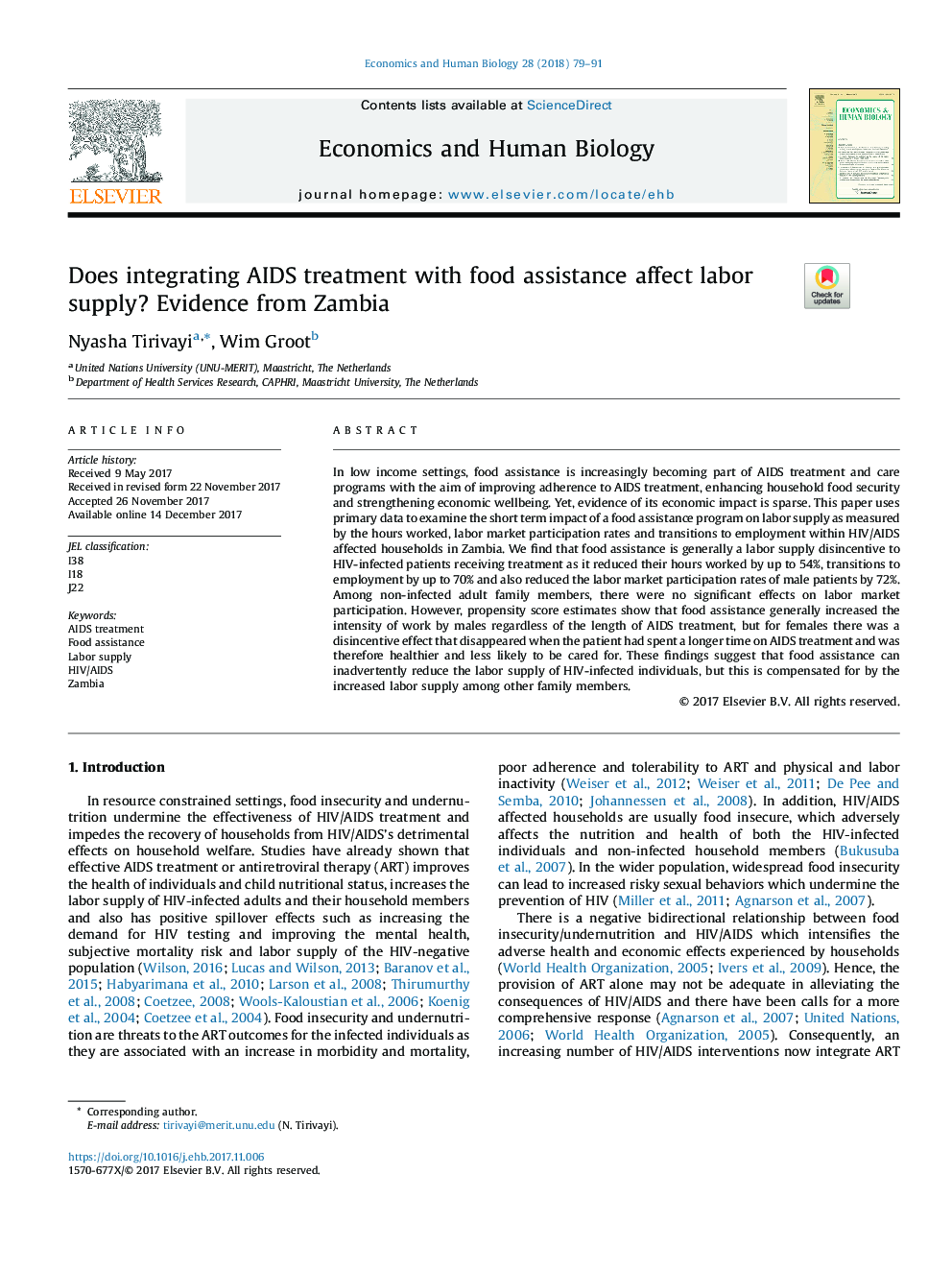| کد مقاله | کد نشریه | سال انتشار | مقاله انگلیسی | نسخه تمام متن |
|---|---|---|---|---|
| 7348281 | 1476550 | 2018 | 13 صفحه PDF | دانلود رایگان |
عنوان انگلیسی مقاله ISI
Does integrating AIDS treatment with food assistance affect labor supply? Evidence from Zambia
ترجمه فارسی عنوان
آیا ادغام درمان ایدز با کمک غذا بر عرضه نیروی کار تاثیر می گذارد؟ شواهد از زامبیا
دانلود مقاله + سفارش ترجمه
دانلود مقاله ISI انگلیسی
رایگان برای ایرانیان
کلمات کلیدی
موضوعات مرتبط
علوم زیستی و بیوفناوری
علوم کشاورزی و بیولوژیک
علوم کشاورزی و بیولوژیک (عمومی)
چکیده انگلیسی
In low income settings, food assistance is increasingly becoming part of AIDS treatment and care programs with the aim of improving adherence to AIDS treatment, enhancing household food security and strengthening economic wellbeing. Yet, evidence of its economic impact is sparse. This paper uses primary data to examine the short term impact of a food assistance program on labor supply as measured by the hours worked, labor market participation rates and transitions to employment within HIV/AIDS affected households in Zambia. We find that food assistance is generally a labor supply disincentive to HIV-infected patients receiving treatment as it reduced their hours worked by up to 54%, transitions to employment by up to 70% and also reduced the labor market participation rates of male patients by 72%. Among non-infected adult family members, there were no significant effects on labor market participation. However, propensity score estimates show that food assistance generally increased the intensity of work by males regardless of the length of AIDS treatment, but for females there was a disincentive effect that disappeared when the patient had spent a longer time on AIDS treatment and was therefore healthier and less likely to be cared for. These findings suggest that food assistance can inadvertently reduce the labor supply of HIV-infected individuals, but this is compensated for by the increased labor supply among other family members.
ناشر
Database: Elsevier - ScienceDirect (ساینس دایرکت)
Journal: Economics & Human Biology - Volume 28, February 2018, Pages 79-91
Journal: Economics & Human Biology - Volume 28, February 2018, Pages 79-91
نویسندگان
Nyasha Tirivayi, Wim Groot,
